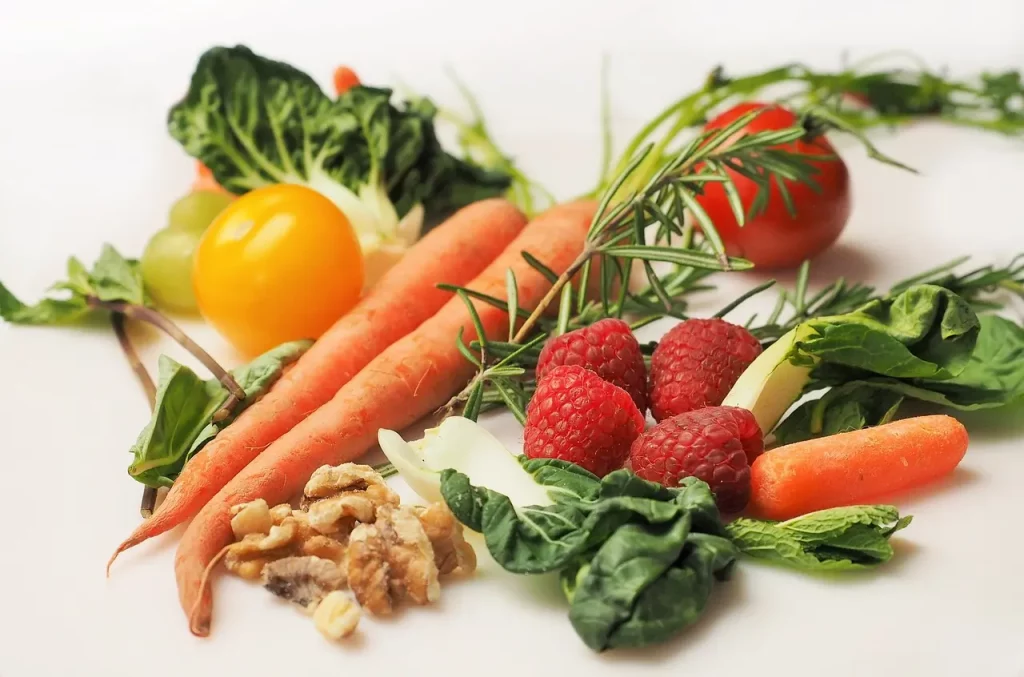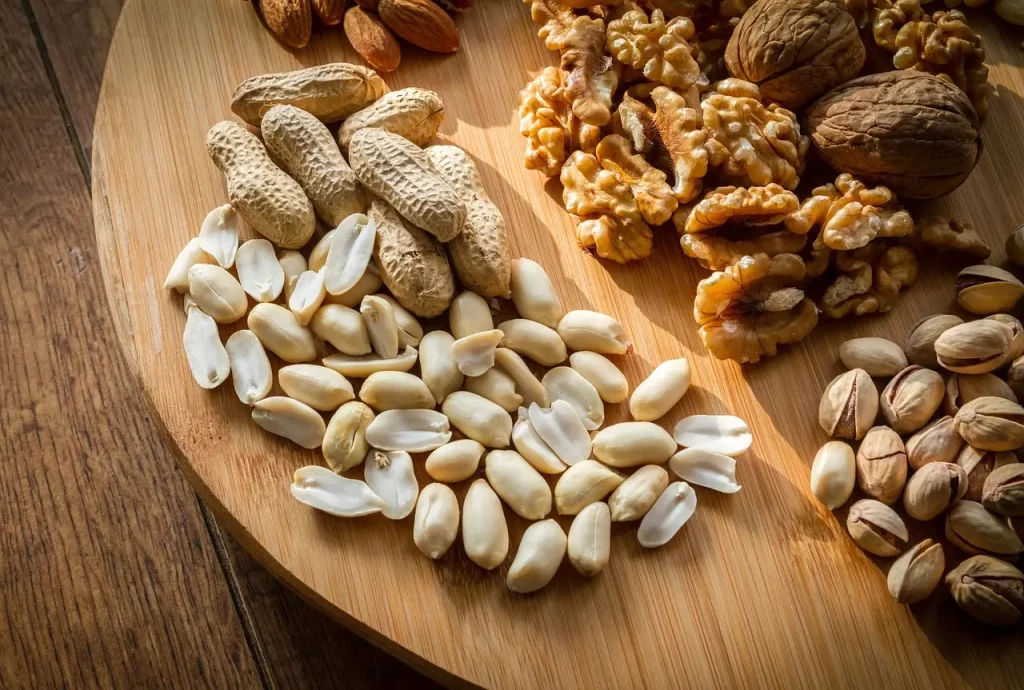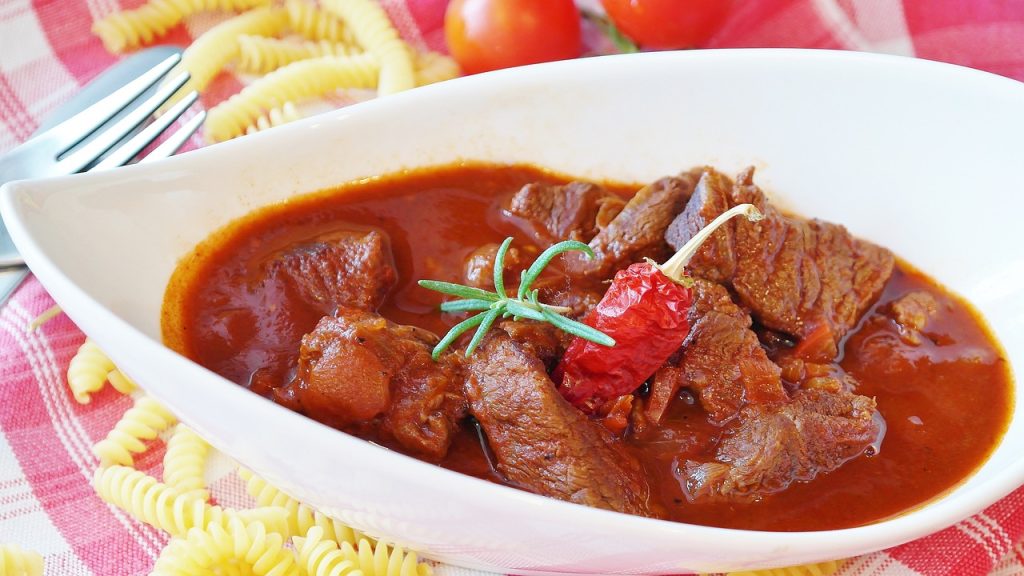Foods play a crucial role in maintaining good health and helping to boost immunity. A healthy and balanced diet can help strengthen the body’s defences against illness and disease. Here, we’ll discuss some of the best foods for boosting immunity. And when you’re going to write about foods that are good for boosting immunity, what better place to start than fruit and veg.
Fruits and Vegetables

Fruits and vegetables are an essential part of a healthy and balanced diet. They are rich in nutrients and antioxidants that boost immunity and provide many other health benefits for the human body.
First and foremost, fruits and vegetables are rich in vitamins and minerals that are essential for good health. For example, vitamin C found in citrus fruits like oranges, lemons, and grapefruits helps boost immunity by supporting the production of white blood cells, which are the body’s first line of defence against harmful pathogens. Vegetables such as broccoli, spinach, and bell peppers are also rich in vitamin C.
Another important benefit of fruits and vegetables is that they are high in fibre. Fibre is essential for maintaining good digestive health. Fibre helps regulate digestion and prevents constipation, which can lead to more serious digestive problems. It also helps lower cholesterol levels and reduces the risk of heart disease.
In addition to vitamins and minerals, fruits and vegetables are also rich in antioxidants. These help protect the body against damage from free radicals. Antioxidants are important for preventing chronic diseases such as cancer, heart disease, and stroke.
Great for Losing Weight Too
Fruits and vegetables are also low in calories and high in nutrients, making them an excellent choice for those who are trying to lose weight or maintain a healthy weight. They are filling and can help curb hunger, making it easier to stick to a healthy diet.
Consuming a diet rich in fruits and vegetables can also help improve mental health and reduce stress levels. Research has shown that a diet rich in fruits and vegetables is associated with lower levels of anxiety and depression.
Finally, it’s important to note that eating a variety of fruits and vegetables is key. Each type of fruit and vegetable provides unique nutrients. Therefore, it’s important to consume a variety of different types to ensure that you’re getting all the necessary nutrients for optimal health. Now that we have covered fruit and veg, let’s move on to probiotic-rich foods.
Probiotic-Rich Foods That Boost Immunity

Probiotic-rich foods play a crucial role in helping to boost immunity and maintain good health. Probiotics are beneficial bacteria that live in the gut and help support the digestive system, as well as the immune system.
First and foremost, probiotics help support the gut microbiome, which is where approximately 70% of the immune system is located. A healthy gut microbiome is essential for fighting off infections and illnesses, as well as maintaining overall health and well-being. Probiotics help to balance the gut microbiome by increasing the number of beneficial bacteria, which in turn helps to keep harmful pathogens in check.
In addition to supporting the gut microbiome, probiotics also help boost immunity. They stimulate the production of antibodies, which are the body’s first line of defence against harmful pathogens. They do this by activating the immune cells in the gut. This then helps to neutralise harmful substances and prevent them from spreading to other parts of the body.
Anti-Inflammatory Properties
Probiotic-rich foods also have anti-inflammatory properties, which are important for maintaining a strong immune system. Inflammation is a natural response of the immune system to harmful stimuli. However, when it becomes chronic, it can weaken the immune system and increase the risk of disease. Probiotics help to reduce inflammation by modulating the immune response, which in turn helps to keep the immune system strong and healthy.
Some of the best probiotic-rich foods include yoghurt, kefir, sauerkraut, kimchi, and miso. These foods contain live cultures of beneficial bacteria that can help support the gut microbiome and boost immunity.
It’s also important to note that not all probiotic-rich foods are created equal. Some may be more beneficial for boosting immunity than others. For example, some strains of bacteria have been shown to have a stronger effect on the immune system than others. This means it’s important to choose probiotic-rich foods that contain these strains. Now let’s move on to why it’s important to eat foods high in zinc.
Foods High in Zinc

Zinc is an essential mineral that plays a critical role in many bodily functions, including the immune system, wound healing, and growth and development.
First and foremost, zinc is essential for a healthy immune system. It plays a key role in the production of white blood cells, which are the body’s first line of defence against harmful pathogens. Zinc also helps to regulate the immune response, ensuring that the body responds appropriately to infections and illnesses. Studies have shown that people with a zinc deficiency are more susceptible to infections and illnesses, highlighting the importance of this mineral for a strong immune system.
Proper Wound Healing
In addition to its role in the immune system, zinc is also essential for proper wound healing. Zinc helps to activate enzymes that are involved in tissue repair, and it also helps to reduce inflammation and promote cell growth, both of which are important for proper wound healing.
Zinc is also important for growth and development, particularly in children and adolescents. This mineral is essential for the proper functioning of the body’s growth hormones, and it is involved in the synthesis of DNA and RNA, which are the building blocks of cells.
Some of the best food sources of zinc include oysters, beef, poultry, nuts, and whole grains. It’s important to note that plant-based sources of zinc, such as whole grains and nuts, are not as easily absorbed by the body as animal-based sources, so it’s important to include a variety of both types of food in your diet to ensure adequate intake. Moving on, we’re going to look at why it’s important to eat a decent amount of protein.
Foods High in Protein That Boost Immunity

Protein is an essential macronutrient that plays a critical role in many bodily functions, including the growth and repair of tissues, the production of enzymes and hormones, and the maintenance of a healthy immune system.
First and foremost, protein is essential for the growth and repair of tissues in the body. Proteins are made up of amino acids, which are the building blocks of cells and tissues. When the body needs to repair damaged tissues, such as muscle fibres after exercise or wounds on the skin, it uses amino acids from dietary protein to create new tissue. Without adequate amounts of protein, the body may not be able to repair tissues effectively. This will lead to muscle weakness, slow wound healing, and other health problems.
Producing Enzymes and Hormones
In addition to its role in tissue growth and repair, protein is also important for the production of enzymes and hormones. Enzymes are catalysts that help to break down food and perform other important functions in the body. Hormones are chemical messengers that regulate various bodily processes. Adequate protein intake is necessary for the proper functioning of enzymes and hormones. This has a significant impact on overall health and well-being.
Protein is also important for maintaining a healthy immune system. The immune system is made up of cells that need protein to function effectively. Additionally, certain proteins, such as antibodies, play a critical role in the immune response, helping to neutralise harmful pathogens and prevent infections and illnesses.
Some of the best food sources of protein include meat, poultry, fish, dairy products, beans, and nuts. It’s important to note that different types of protein can have different effects on the body, and it’s important to include a variety of protein-rich foods in the diet to ensure adequate intake. Finally, let’s have a quick paragraph about the benefits of garlic and ginger.
Garlic and Ginger
Ginger and garlic are great for boosting immunity due to their antimicrobial and anti-inflammatory properties. Ginger has been shown to have similar effects, as well as the ability to reduce inflammation in the body. Garlic can help increase the production of natural killer cells. These cool-sounding cells play a key role in defending the body against infections.
Wrapping Up Foods That Boost Immunity
In conclusion, a healthy and balanced diet is essential for boosting immunity and preventing illness. Incorporating fruits and vegetables, probiotic-rich foods, zinc-rich foods, garlic and ginger, and adequate amounts of protein into your diet can help strengthen your body’s defences and keep you healthy. It’s important to remember that a well-rounded diet is key. It’s always best to consume a variety of different foods to ensure that you’re getting all the necessary nutrients for optimal health.
Food is great but food that is good for you and boosts immunity is even greater. You can find more articles on the benefits of a healthy diet and posts about specific foods by heading over here. And if you have kids or grandkids and are lookign for some help to persuade them that healthy eating is a good life choice without sounding too preachy, then check this out.
Read More
- ACL Injuries and Everything You Need to Know
- 5 Types of food That Will Boost Immunity
- How to Improve Your Life with a Great Morning Routine
- The Benefits of Concentrating on Personal Development
- 6 Ways to Give Up Smoking Once and For All
Disclaimer: The information provided on Healthy Lifestyles for All is intended for general educational purposes only and should not be considered as medical advice. Please consult with your GP or other health professional before making any significant changes to your diet, exercise routine, or any other aspect of your lifestyle. We are not responsible for any adverse effects or consequences resulting from the use of the information provided on our blog.
Comments: I hope you enjoyed reading this post as much as I enjoyed writing it. If you liked it, please leave a comment. If you didn’t like it, disagree with something I have written (I’m okay with that), or think I got something wrong (that’s okay too), please leave a comment as well. We only truly learn from our mistakes, so I am happy to have mine pointed out.
Affiliate Links: Please also note that I may make a small amount of money if you buy one of the products I recommend in any of my blog posts. Rest assured that I have done my own due diligence, and only recommend products that have been tried and tested, and have extremely good feedback. Additionally, many of the products I recommend have 30 or 60-day money-back guarantees, so you can buy in the confidence that if a particular product is not right for you, you can get a refund.

